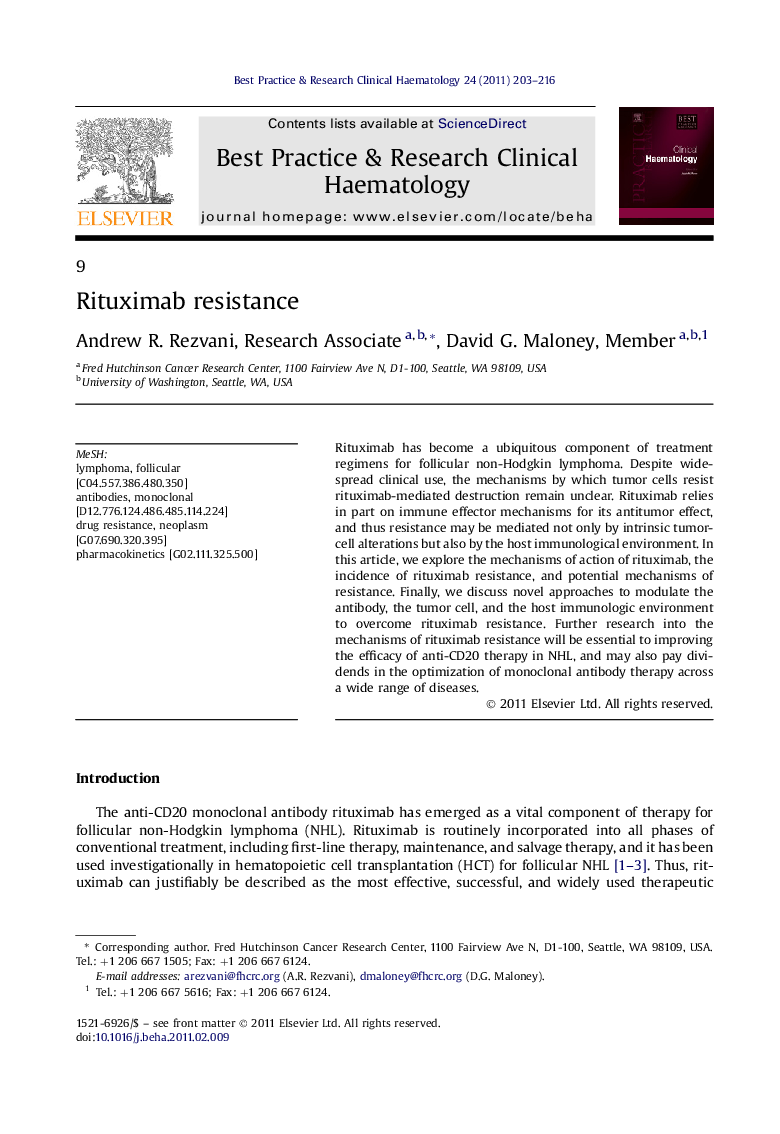| Article ID | Journal | Published Year | Pages | File Type |
|---|---|---|---|---|
| 2100250 | Best Practice & Research Clinical Haematology | 2011 | 14 Pages |
Rituximab has become a ubiquitous component of treatment regimens for follicular non-Hodgkin lymphoma. Despite widespread clinical use, the mechanisms by which tumor cells resist rituximab-mediated destruction remain unclear. Rituximab relies in part on immune effector mechanisms for its antitumor effect, and thus resistance may be mediated not only by intrinsic tumor-cell alterations but also by the host immunological environment. In this article, we explore the mechanisms of action of rituximab, the incidence of rituximab resistance, and potential mechanisms of resistance. Finally, we discuss novel approaches to modulate the antibody, the tumor cell, and the host immunologic environment to overcome rituximab resistance. Further research into the mechanisms of rituximab resistance will be essential to improving the efficacy of anti-CD20 therapy in NHL, and may also pay dividends in the optimization of monoclonal antibody therapy across a wide range of diseases.
